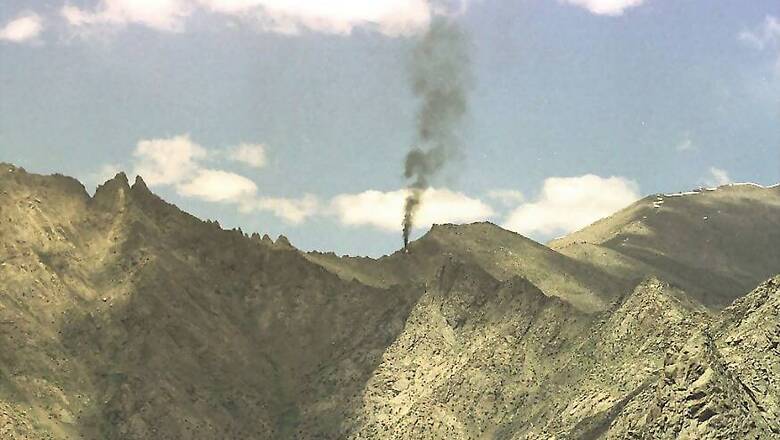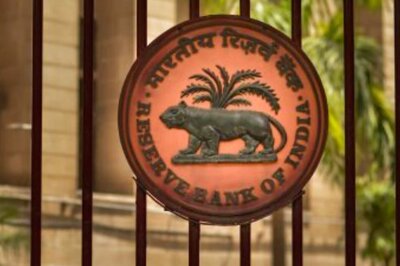
views
New Delhi: The two-tier iron bridge shuddered to a sudden spasm as the train overhead crossed over. Down below, the splendid Son, swollen by a generous monsoon was a muddied expanse, dotted with fishing boats. Sandwiched between the two, our car chugs along the narrow passage to enter Bhojpur district, west of capital Patna- once a hotbed of internecine caste wars between Ranvir Sena and the now defunct Maoist Communist Centre or MCC.
Dusk closes in quite rapidly on an overcast sky when we finally manage to locate Subedar Ashok Singh’s house in Raktu Tola, fifteen kilometres from the sub-divisional headquarter Piro. Singh was killed in the militant strike at Uri earlier this month, and he is survived by two sons and wife Sangita Devi. As we enter the drawing room, one can hear External Affairs Minister Sushma Swaraj winding up her address at the United Nations General Assembly (UNGA). Television channels were carrying it live.
After the speech ends, I ask Sangita Devi about government’s response to the Uri killings.
“I am not satisfied yet. Something should be done so that such incidents do not recur,” she said.
The concern of a woman who has just lost her husband and whose elder son is now training at Danapur cantonment in Patna to join the army anytime next year is quite understandable. Though not explicit but inherent in that statement was also a certain sense of accountability being sought from a government which claims to have zero-tolerance on terror.
It is no surprise then that Prime Minister Modi and his Cabinet Committee on Security (CCS) decided to strike and strike hard within a fortnight of the Uri attacks. For the BJP, as the ruling party in power, it was as much a political consideration as it was a strategic one.
Narendra Modi’s entire campaign in the run up to 2014 general elections had many open signifiers of political communication. For example ‘hope’ that was encapsulated in the ‘acche din’ refrain. But at the same time he tactically projected himself as a strong leader in a sharp contrast to Dr Manmohan Singh.
Modi was seen as someone who would bring about a turnaround in internal security environment and economy. With his track-record as Gujarat CM, his administrative skills as against open signifiers were something tangible that BJP used to reach out to the electorate.
What happened in Uri and the larger social media narrative had the potential to rob the incumbent dispensation of its assiduously built USP.
So it was just a matter of time that the government would strike back. There have been instances in the past when Indian soldiers have undertaken cross border operations. But this time around it was also imperative for the government to come out of the operations room and take responsibility for having given a go-ahead for surgical strikes.
That message has gone out- loud and clear- to constituencies both within and without.
Internal Politics
Amidst heightened tension in Kashmir valley, BSP leader Mayawati addressed a party rally at Azamgarh in eastern UP in August last week. She alleged that "ahead of Uttar Pradesh polls a desperate BJP may, in order to divert attention from its government's failures, trigger a war with Pakistan."
Not that Mayawati had any foreboding of things to come. The assertion if at all signified only one thing- that any escalation at the border or LoC has the potential to alter the entire political discourse in the country. And poll-bound UP would be no exception to the phenomenon.
For the BJP, as it approaches critical electoral test in three key states: UP, Uttarakhand and Punjab, third is precisely a broad narrative it would like to develop in the days ahead. It’s a narrative which not only mobilises its core constituency; it helps to wade through the caste quagmire of electoral politics in the Hindi-heartland.
A lot now would depend on how things unfold from here onwards. If the party feels that a campaign weaved around the developments at the LoC is finding resonance, BJP would be less inclined to declare CM candidates in both UP and Uttarakhand.



















Comments
0 comment